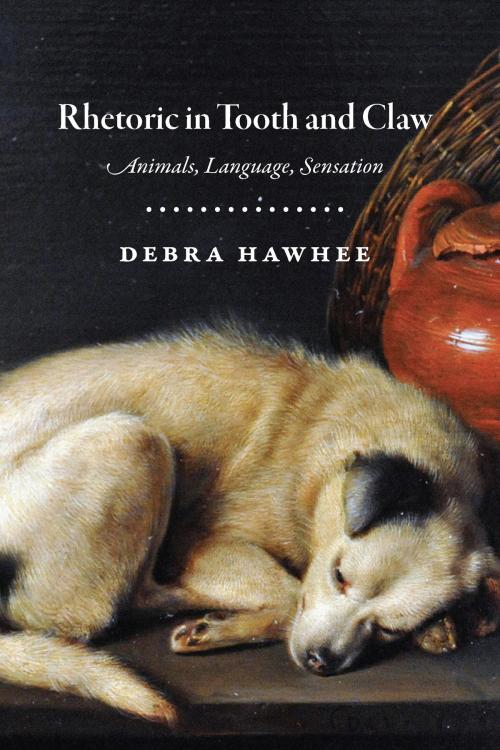Rhetoric in Tooth and Claw
Animals, Language, Sensation
Fiction & Literature, Literary Theory & Criticism, Medieval, Nonfiction, Reference & Language, Language Arts, Public Speaking, Rhetoric| Author: | Debra Hawhee | ISBN: | 9780226398204 |
| Publisher: | University of Chicago Press | Publication: | November 21, 2016 |
| Imprint: | University of Chicago Press | Language: | English |
| Author: | Debra Hawhee |
| ISBN: | 9780226398204 |
| Publisher: | University of Chicago Press |
| Publication: | November 21, 2016 |
| Imprint: | University of Chicago Press |
| Language: | English |
We tend to think of rhetoric as a solely human art. After all, only humans can use language artfully to make a point, the very definition of rhetoric.
Yet when you look at ancient and early modern treatises on rhetoric, what you find is surprising: they’re crawling with animals. With Rhetoric in Tooth and Claw, Debra Hawhee explores this unexpected aspect of early thinking about rhetoric, going on from there to examine the enduring presence of nonhuman animals in rhetorical theory and education. In doing so, she not only offers a counter-history of rhetoric but also brings rhetorical studies into dialogue with animal studies, one of the most vibrant areas of interest in humanities today. By removing humanity and human reason from the center of our study of argument, Hawhee frees up space to study and emphasize other crucial components of communication, like energy, bodies, and sensation.
Drawing on thinkers from Aristotle to Erasmus, Rhetoric in Tooth and Claw tells a new story of the discipline’s history and development, one animated by the energy, force, liveliness, and diversity of our relationships with our “partners in feeling,” other animals.
We tend to think of rhetoric as a solely human art. After all, only humans can use language artfully to make a point, the very definition of rhetoric.
Yet when you look at ancient and early modern treatises on rhetoric, what you find is surprising: they’re crawling with animals. With Rhetoric in Tooth and Claw, Debra Hawhee explores this unexpected aspect of early thinking about rhetoric, going on from there to examine the enduring presence of nonhuman animals in rhetorical theory and education. In doing so, she not only offers a counter-history of rhetoric but also brings rhetorical studies into dialogue with animal studies, one of the most vibrant areas of interest in humanities today. By removing humanity and human reason from the center of our study of argument, Hawhee frees up space to study and emphasize other crucial components of communication, like energy, bodies, and sensation.
Drawing on thinkers from Aristotle to Erasmus, Rhetoric in Tooth and Claw tells a new story of the discipline’s history and development, one animated by the energy, force, liveliness, and diversity of our relationships with our “partners in feeling,” other animals.















